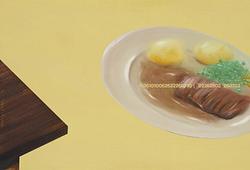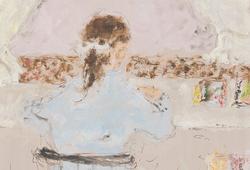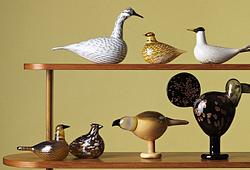Ernst Josephson
"Den fjortonde juli" (July 14th)
Signed Ernst Josephson and dated Paris 1883. Oil on canvas 90 x 119 cm.
Tuontiarvonlisävero
Tuontiarvonlisävero (12%) tullaan veloittamaan tämän esineen vasarahinnasta. Lisätietoja saat soittamalla Ruotsin asiakaspalvelumme numeroon +46 8-614 08 00.
Alkuperä - Provenienssi
Wholesale dealer Wilhelm Josephson (the artist's uncle, around 1893); Wholesale dealer John Josephson, Stockholm (son of the above and the artist's cousin, around 1923); Mrs. Ellen Josephson, Stockholm (wife/widow of the above, around 1942-1951); Nordén Auktioner, Stockholm, Sale 18, May 17, 1995, lot 102; J.E. Safra Collection (acquired at the above sale).
Näyttelyt
Palais des Champs-Élysées, Paris, "Paris-Salon, Exposition des Beaux-Arts", 1883, no. 1283; Nordiska konstutställningen, Copenhagen, July 1883, no. 46; "Exposition universelle de 1889", Paris, no. 54; "Ernst Josephson. Utställning", Stockholm, February 1893, no. 47; Konstnärsförbundet, "Minnesutställning 1885-1905", no. 209; Konstnärsförbundet, exhibition, Berlin, 1910, no. 88; Kungliga Akademien för de fria konsterna (Royal Academy of Arts), Stockholm, "Ernst Josephson", 1923, no. 74; Galerie S:t Lucas, Stockholm, "Ernst Josephson. Målningar ur privata samlingar", 1942, no. 56; Nationalmuseum, Stockholm, "Opponenterna av 1885. Utställning till sextioårsminnet av det första moderna genombrottet i svensk konst", March 16 - May 16, 1945, no. 26; Liljevalchs Konsthall (Liljevalchs Public Art Gallery), Stockholm, "Ernst Josephson. Minnesutställning", 1951, no. 142; Prins Eugens Waldemarsudde, Stockholm, "Ernst Josephson", November 14, 1991 - March 1, 1992, no. 42; Borås konstmuseum, Sweden, "Ernst Josephson", March 15 - May 17, 1992.
Kirjallisuus
Godfrey Renholm, 'Salonen i Paris', article in Göteborgs Posten, May 19, 1883; Karl Warburg, Göteborgs Handels-och Sjöfartstidning, July 14, 1883; Carl Rupert Nyblom, Post-och inrikes tidningar, July 28, 1883; Richard Kaufmann, Göteborgs Handels-och Sjöfartstidning, 1883; Karl Wåhlin, "Ernst Josephson. En minnesteckning. Senare delen (II) 1879-1906", SAK, 1912, mentioned p. 74 and illustrated full page p. 73; Georg Pauli, "Ernst Josephson", 1914, pp. 30-31; Georg Pauli, "Opponenterna", 1927, mentioned p. 12; Sixten Strömbom, "Konstnärsförbundets historia", vol. I, 1945, mentioned p. 166 and 182; Erik Blomberg, "Ernst Josephson. Hans liv", 1951, mentioned pp. 311-313 and illustrated p. 311; Erik Blomberg, "Ernst Josephsons konst", 1956, mentioned p. 149 and illustrated p. 150; 'Paintings and Drawings by Ernst Josephson, 1851-1906', article in exhibition catalogue, Portland Art Museum, Oregon/California Palace of the Legion of Honor, San Francisco/La Jolla Museum of Art, California/University Gallery, University of Minnesota, Minneapolis/Gallery of Modern Art, New York, 1964-1965, p. 22 ("Salon accepts 'Fourteenth of July' "); Per-Olov Zennström, "Ernst Josephson", 1978, mentioned pp. 134-135 and illustrated p. 144; Ingrid Mesterton et al 'Ernst Josephson (1851-1906), Bilder und Zeichnungen', article in exhibition catalogue, Städtisches Kunstmuseum, Bonn (March 22 - May 6, 1979)/Bochum Museum, Bochum (May 19 - June 20, 1979); Henri Usselman, '14 juillet d'Ernst Josephson', article in Konsthistorisk tidskrift, 1983, pp. 75-82; Hans Henrik Brummer, "Ernst Josephson. Målare och diktare", 2001, mentioned p. 115.
Muut tiedot
This impressive depiction of the celebrations on July 14th was painted in the artist's new studio on Rue Monsieur le Prince, Montparnasse in Paris. Josephson had taken lease on the new studio in 1882, upon returning from a longer stay in Spain which begun in 1881. The expert on Josephson, Erik Blomberg, writes the following about ”July 14th” in his book from 1956: ”Back in Paris, he pursues the rendering of every day genre scenes, albeit set in a new environment, still carried out in an evident continuity with his earlier Spanish subjects. In the present painting he rounded up some Italian models, dressed up as street musicians on their way to celebrate the French National Day. He has set them up in front of his studio window with the apparent intention to make the spectator believe that he painted them in the open air. The window frame has been cleverly hidden with foliage. To the left is a blue-gray sky over the Parisian rooftops, with their typical chimney silhouette. On the other side you can see the upper floors and the roof of a house, where suspended tricolors indicate the date in question. By depicting his models as if marching past, Josephson sought to give the impression that the street view is also of a somewhat temporary, passing nature. In fact, it was the view that met him every day in his studio overlooking the courtyard three flights up. It is the roof belonging to the lower house in the courtyard that can be glimpsed between the two children in the lower right corner of the composition. One of the plate pipes that rises from the chimney is still preserved in its original shape on another chimney. The house with the balcony, however, is on the other side of a street (Rue Racine), separated from the house in the courtyard. Apart from a small addition on the roof, this house with its attics, its balcony railing and its shutters remains exactly the same as in the painting. This shows the unscrupulous realism by which Josephson worked directly after nature at the time ’July 14th’ was painted”. Much to Josephson’s happiness ”July 14th” was accepted by and exhibited in the prestigious "Paris-Salon, Exposition des Beaux-Arts" at Palais des Champs-Élysées, Paris in 1883. The painting was also on display at the "Exposition universelle de 1889" in Paris. In his review of the ”Paris-Salon” of 1883 (actually published in GHT on the fourteenth of July that year!) Karl Warburg writes: "Ernst Josephson appears at this exhibition with great strength and turns out to be one of the most distinguished painters of the Parisian school, with the vivid swiftness of painterly style, which constitutes the 'force of impressionism’. This is true, in particular, concerning a larger piece by his brush; ’Italian musicians returning from the celebrations on July 14' which deservedly has gained attention for its truth, life and powerful rendering of the models”.
























